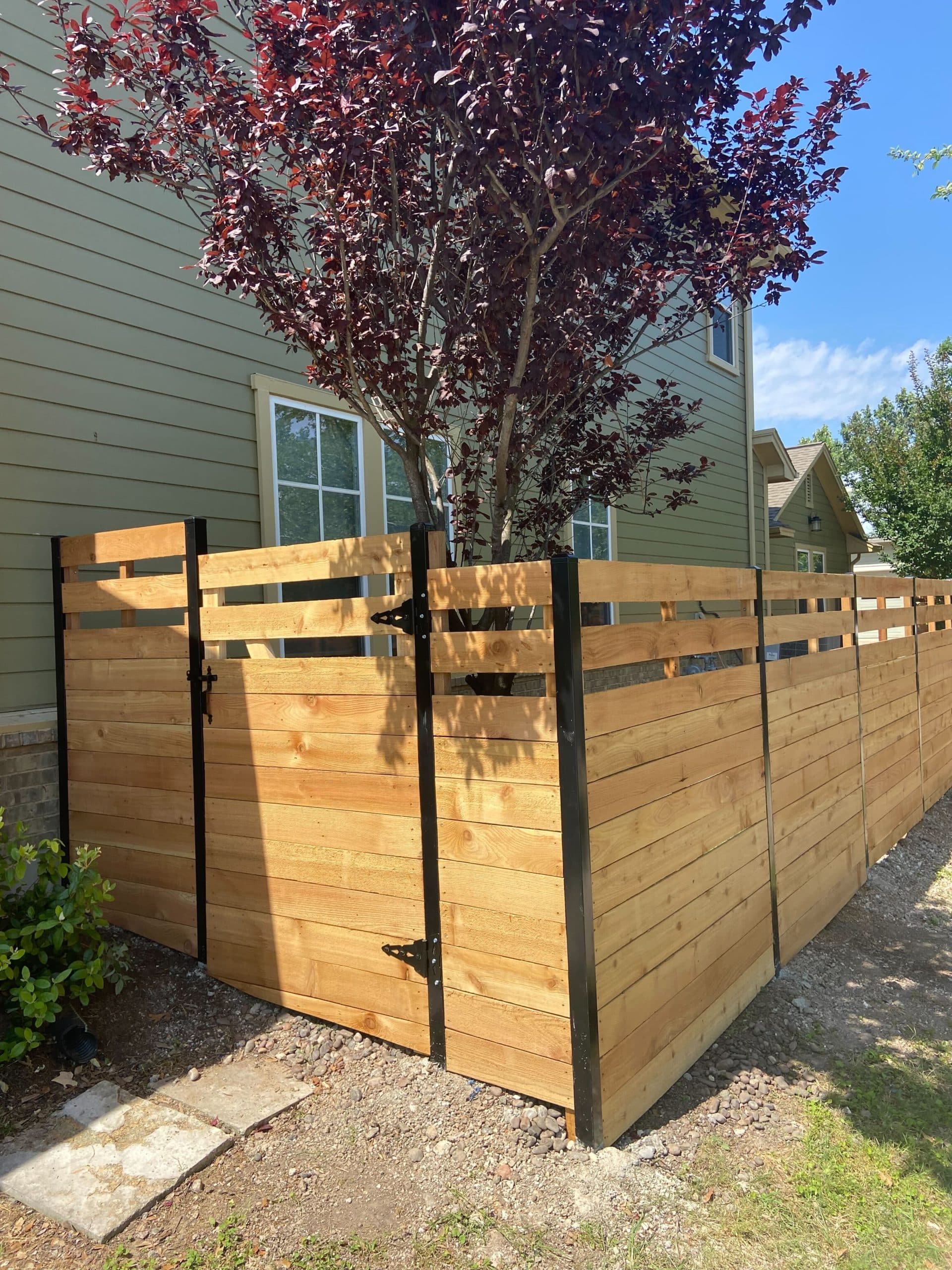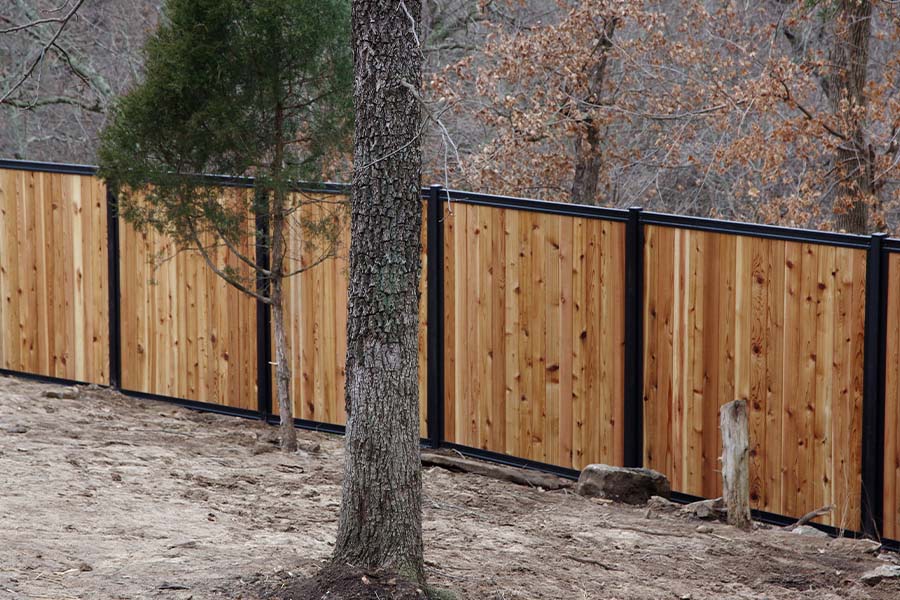Featured
When you choose to set up a fencing around your domestic home, it's vital to comprehend the license needs specific to your area. Here's a detailed appearance at the permits you may need for fencing setup.
Why Do You Need an Authorization for Fencing Installation? A fence is greater than just an obstacle between residential properties-- it can impact security, residential property value, appearances, and also environmental conditions. City governments call for licenses to make certain that fencings satisfy specific criteria and do not trigger problems for energies, next-door neighbors, or the area all at once. Licenses also make certain that the installment conforms with zoning laws, building codes, and security laws.
![]()
Kinds Of Licenses You Might Need. Structure Authorization. A structure permit is one of the most typical permits required for fencing setup. If you're developing a fencing over a specific height (commonly over 6 feet), you'll likely need a structure license.
Zoning Permit. Zoning laws control just how land is made use of in a specific location, and they include regulations regarding fencings. A zoning license ensures your fencing adheres to height, trouble, and place guidelines. As an example, fencings might require to be established back a particular range from sidewalks, roads, or residential or commercial property lines to stop blockage or disturbance with energies. Sometimes, zoning laws can likewise specify which materials are permitted.
HOA Approval. You may require to look for authorization prior to mounting a fence if your home is part of a property owners association (HOA) HOAs typically have standards that regulate the looks and framework of fences to ensure they are in consistency with the community. You could need to submit your strategies for approval, and the HOA may limit fencing product, design, or height.
Specialized Permits. In some areas, there might be added licenses required for certain circumstances. As an example, if your fence is near a safeguarded environmental area or situated in a flooding area, you may need to acquire specialty permits connected to environmental influence. If the fencing is in a location with underground utilities, you might require to get clearance to stay clear of destructive pipelines or cords.
![]()
Easement or Utility Business Consent. Before installing a fencing, it's important to examine whether the residential or commercial property consists of an easement, such as an utility easement, which could influence where you can place your fencing. Easements are areas of land assigned for personal or public energies, and you might require approval from the energy firm or various other authority to develop within this area.
How to Find Out What Permits You Required. To make certain that you're complying with all the needed laws, below's just how you can figure out the particular licenses needed for your fence installation:
![]()
See Your Regional Government Workplace: The initial step is to consult your regional building or zoning division. Numerous cities and regions have standards readily available online that specify what sorts of permits are needed for fencing setup. If not, calling or visiting the workplace face to face can aid clear up the procedure. Examine Your City's Web site: Lots of municipalities provide information concerning fence installations and the licenses needed with their official websites. Some web sites even allow you to send applications on the internet. Seek Advice From a Fencing Installation Expert: If you're uncertain about regional regulations, a specialist fencing professional can aid. They know with the allowing process and can assist you with the actions. The Consequences of Not Getting an Authorization. Stopping working to protect the needed permits prior to mounting a fence can cause significant repercussions. You might be fined or needed to get rid of the fencing entirely. Additionally, if you decide to market your property in the future, the absence of an authorization might deter prospective buyers, as they might see it as an indicator that the home is not certified with neighborhood legislations. Guaranteeing that you have the appropriate permits will certainly save you time, cash, and frustrations over time.
Final thought. Setting up a fencing around your property can add both security and visual allure, yet it is necessary to ensure you're following the lawful action in the process. Looking into the specific permit demands for your area, including structure authorizations, zoning policies, HOA approval, and energy authorizations, will certainly assist guarantee your fence setup goes efficiently. Putting in the time to understand these requirements now can conserve you from expensive errors and prospective lawful issues down the line.
Why Do You Need an Authorization for Fencing Installation? A fence is greater than just an obstacle between residential properties-- it can impact security, residential property value, appearances, and also environmental conditions. City governments call for licenses to make certain that fencings satisfy specific criteria and do not trigger problems for energies, next-door neighbors, or the area all at once. Licenses also make certain that the installment conforms with zoning laws, building codes, and security laws.

Kinds Of Licenses You Might Need. Structure Authorization. A structure permit is one of the most typical permits required for fencing setup. If you're developing a fencing over a specific height (commonly over 6 feet), you'll likely need a structure license.
Zoning Permit. Zoning laws control just how land is made use of in a specific location, and they include regulations regarding fencings. A zoning license ensures your fencing adheres to height, trouble, and place guidelines. As an example, fencings might require to be established back a particular range from sidewalks, roads, or residential or commercial property lines to stop blockage or disturbance with energies. Sometimes, zoning laws can likewise specify which materials are permitted.
HOA Approval. You may require to look for authorization prior to mounting a fence if your home is part of a property owners association (HOA) HOAs typically have standards that regulate the looks and framework of fences to ensure they are in consistency with the community. You could need to submit your strategies for approval, and the HOA may limit fencing product, design, or height.
Specialized Permits. In some areas, there might be added licenses required for certain circumstances. As an example, if your fence is near a safeguarded environmental area or situated in a flooding area, you may need to acquire specialty permits connected to environmental influence. If the fencing is in a location with underground utilities, you might require to get clearance to stay clear of destructive pipelines or cords.

Easement or Utility Business Consent. Before installing a fencing, it's important to examine whether the residential or commercial property consists of an easement, such as an utility easement, which could influence where you can place your fencing. Easements are areas of land assigned for personal or public energies, and you might require approval from the energy firm or various other authority to develop within this area.
How to Find Out What Permits You Required. To make certain that you're complying with all the needed laws, below's just how you can figure out the particular licenses needed for your fence installation:

See Your Regional Government Workplace: The initial step is to consult your regional building or zoning division. Numerous cities and regions have standards readily available online that specify what sorts of permits are needed for fencing setup. If not, calling or visiting the workplace face to face can aid clear up the procedure. Examine Your City's Web site: Lots of municipalities provide information concerning fence installations and the licenses needed with their official websites. Some web sites even allow you to send applications on the internet. Seek Advice From a Fencing Installation Expert: If you're uncertain about regional regulations, a specialist fencing professional can aid. They know with the allowing process and can assist you with the actions. The Consequences of Not Getting an Authorization. Stopping working to protect the needed permits prior to mounting a fence can cause significant repercussions. You might be fined or needed to get rid of the fencing entirely. Additionally, if you decide to market your property in the future, the absence of an authorization might deter prospective buyers, as they might see it as an indicator that the home is not certified with neighborhood legislations. Guaranteeing that you have the appropriate permits will certainly save you time, cash, and frustrations over time.
Final thought. Setting up a fencing around your property can add both security and visual allure, yet it is necessary to ensure you're following the lawful action in the process. Looking into the specific permit demands for your area, including structure authorizations, zoning policies, HOA approval, and energy authorizations, will certainly assist guarantee your fence setup goes efficiently. Putting in the time to understand these requirements now can conserve you from expensive errors and prospective lawful issues down the line.
Latest Posts
Vital Ideal Practices for Taking Care Of Call Lenses
Published Jan 20, 25
0 min read
The Ultimate Guide to Outdoor Weddings in Twin Falls
Published Jan 20, 25
1 min read
A-Abel Roofing: Reliable Roofing Services in Tinley Park
Published Jan 20, 25
1 min read